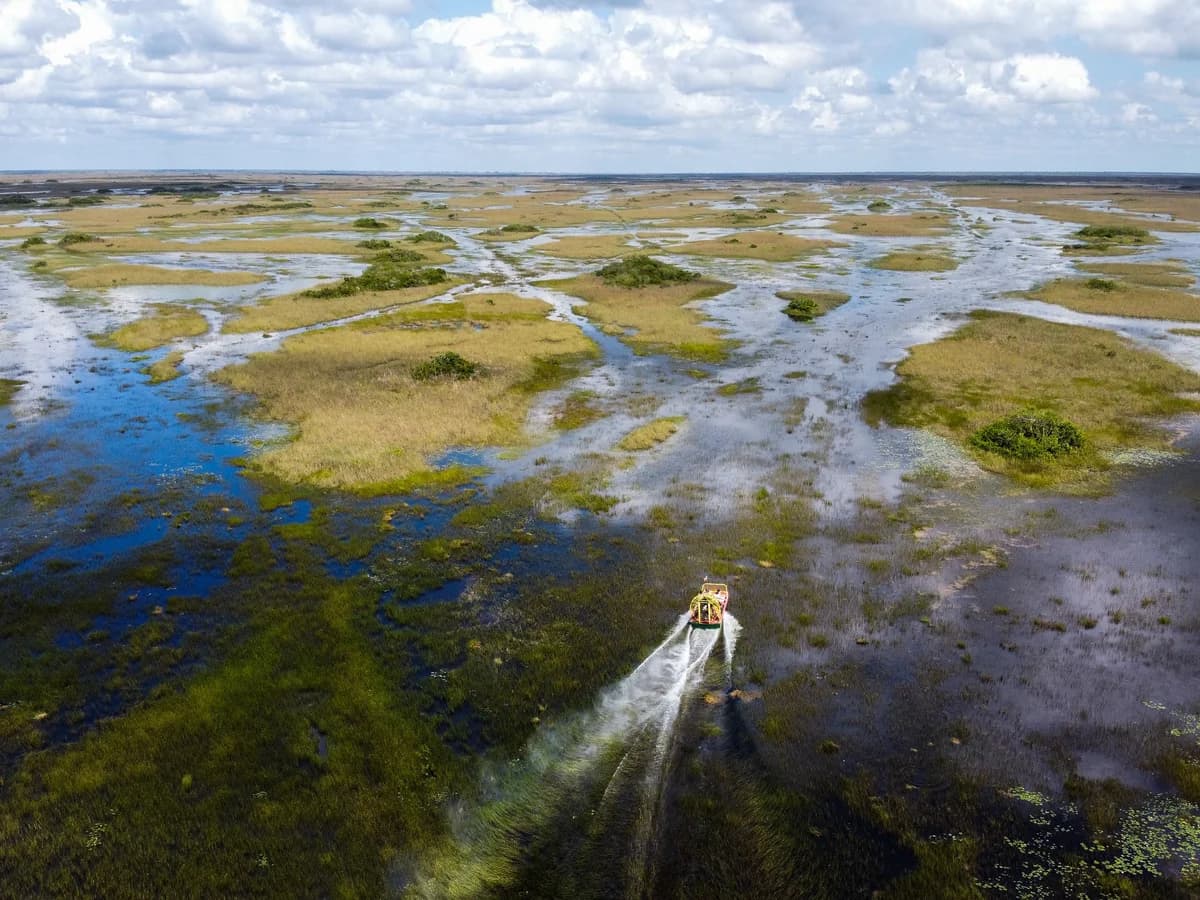We're loading the full news article for you. This includes the article content, images, author information, and related articles.
A prominent environmental scientist, briefly jailed in a case linked to Florida's Everglades restoration, now claims his legal woes stem from a non-existent employment contract, raising questions about accountability and free speech.

A legal dispute involving a water quality project in Florida has taken a new turn, with environmental scientist Tom Van Lent alleging that his brief imprisonment was based on fraudulent claims of an employment contract. This development adds a significant twist to a three-year legal saga that began with disagreements over a proposed Everglades restoration initiative.
Mr. Van Lent, widely recognised as a leading Everglades scientist in the United States, was formerly employed by the Everglades Foundation. He claims that a tweet critical of the foundation, a prominent non-profit with strong ties to Florida's Republican leadership, led to a case against him. The foundation, according to Mr. Van Lent and his attorney, built its case on the assertion that he had violated an employment contract.
The scientist had publicly criticised a project backed by Florida Governor Ron DeSantis upon his departure from the foundation in 2022, stating his new employer would "put facts over politics." Soon after, the foundation initiated a lawsuit, alleging Mr. Van Lent had breached his employment contract by retaining the non-profit's "trade secrets." This case culminated in Mr. Van Lent's 10-day jail sentence and an order to pay KES 23.5 million (USD 177,000) in legal costs in June, after a judge found him in contempt of court for not returning certain electronic materials and documents.
However, Mr. Van Lent's attorney, Michael Rayboun, now contends that the alleged employment contract does not exist. Mr. Rayboun has accused the foundation of "fraud" for claiming under oath that a contract had been signed. Both Mr. Van Lent and his attorney are seeking to reopen the lawsuit and hold the Everglades Foundation accountable for these alleged actions.
"The foundation has committed fraud by alleging the existence of a contract that does not exist," Mr. Rayboun stated.
The Everglades Foundation has denied these allegations and is opposing a motion to reopen the lawsuit, as indicated by court documents. Mr. Rayboun further suggested the foundation's actions were an attempt to "chill his speech and chill others from saying how the foundation holds hands with Florida’s version of a dictator."
The Everglades, a vast wetland ecosystem in Florida, has been the subject of extensive restoration efforts aimed at addressing recurrent environmental issues such as red tides and toxic algal blooms. These projects often involve significant public and private funding, making them susceptible to political influence and scrutiny. The involvement of a prominent environmental foundation with strong political ties highlights the complex interplay between environmental conservation, scientific integrity, and political interests.
This case touches upon several legal principles, including contract law, contempt of court, and allegations of fraud. The existence and validity of an employment contract are central to the foundation's initial lawsuit. The subsequent contempt of court charge against Mr. Van Lent was based on his alleged failure to comply with court orders regarding the return of documents. The current allegations of fraud by Mr. Van Lent's attorney introduce a new legal dimension, potentially leading to further investigations into the foundation's sworn statements.
Key stakeholders in this ongoing legal battle include Tom Van Lent, the environmental scientist; Michael Rayboun, his attorney; and the Everglades Foundation. The foundation, a large non-profit, plays a significant role in Everglades restoration efforts and has established relationships with state political leadership. The testimonies and legal arguments presented by both sides are crucial in determining the outcome of this complex case.
The outcome of this case could have significant implications for environmental scientists, non-profit organisations, and the broader discourse around environmental policy. If Mr. Van Lent's allegations of fraud are substantiated, it could damage the credibility of the Everglades Foundation and potentially lead to legal repercussions. Conversely, if the allegations are disproven, it could further solidify the foundation's position. The case also raises concerns about the potential for legal action to stifle scientific criticism and free speech in environmental advocacy.
The primary unknown in this case is the definitive existence and validity of the alleged employment contract. The court will need to determine whether the Everglades Foundation indeed made fraudulent claims under oath. The motivations behind the initial lawsuit and the subsequent allegations of fraud remain central to the controversy.
The legal saga began approximately three years ago, culminating in Mr. Van Lent's jail sentence in June 2025. His attorney has now filed a motion to reopen the lawsuit based on the new allegations of a non-existent contract. The next steps will involve court proceedings to address this motion and investigate the claims of fraud. The exact dates for these proceedings are yet to be determined.
Observers will be closely watching the court's decision on the motion to reopen the lawsuit. The evidence presented regarding the alleged employment contract will be critical. The case's implications for scientific freedom and the accountability of powerful non-profit organisations in environmental policy will also be key areas of focus.
Keep the conversation in one place—threads here stay linked to the story and in the forums.
Other hot threads
E-sports and Gaming Community in Kenya
Active 8 months ago
Popular Recreational Activities Across Counties
Active 8 months ago
The Role of Technology in Modern Agriculture (AgriTech)
Active 8 months ago
Investing in Youth Sports Development Programs
Active 8 months ago